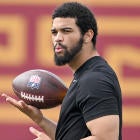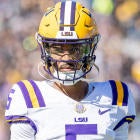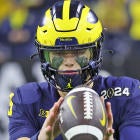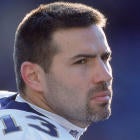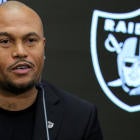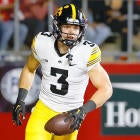A federal judge’s recent approval of the NFL’s concussion settlement demonstrates why the NCAA’s proposed concussion deal “falls far outside the range of possible approval,” lawyers for a former San Diego State football player claim.
An objection to the NCAA settlement filed last week by several lawyers, most notably Chicago attorney Jay Edelson, argues that the Adrian Arrington plaintiffs in the NCAA case sacrificed too much on behalf of former players compared to the NFL settlement. The latest twist regarding the longstanding objections by Edelson, who represents, former San Diego State offensive lineman Anthony Nichols, pits NCAA and NFL settlements against each other.
In December, U.S. District Judge John Lee denied preliminary approval of the NCAA settlement. The settlement calls for a $70 million fund to test, but not treat, thousands of current and former athletes for concussion-related brain trauma; put aside $5 million for research; and change NCAA guidelines for medical care moving forward. In return, players would waive their personal-injury claims as a class action while preserving their rights to individually sue universities, conferences or the NCAA for damages.
The attorneys for the Arrington plaintiffs, led by lawyer Steve Berman, have filed a fourth amended complaint in an attempt to address Lee’s concerns. The plaintiffs added class representatives from a variety of noncontact sports. If the medical monitoring fund runs out of money in less than 50 years, former college athletes could file a new class action seeking additional money for the program. Court documents show the NCAA has agreed to cover up to $15 million in attorneys' fees for Berman and other lawyers for the class.
Edelson, who has tried to oversee the case’s personal injury claims, wrote in a filing with six other firms that the settlement remains a bad deal and “billions of dollars of claims” will go uncompensated because no one will sue the NCAA individually.
U.S. District Judge Anita Brody’s order in the NFL case “eliminated any need for more theoretical debates” with other plaintiffs’ attorneys about whether personal injury claims related to concussions can be certified and prosecuted on a class basis, Edelson wrote.
Brody gave final approval on April 22 to the NFL’s settlement of a lawsuit brought by more than 5,000 former players who accused the NFL of hiding from them the dangers of concussions. The settlement could cost the NFL $1 billion over 65 years. It allows players to receive up to $5 million if they suffer from a severe neurological disorder and medical monitoring for all players to determine if they qualify for a payment. Critics of the settlement say it doesn’t go far enough.
Edelson argues that Brody’s NFL order resolves three critical points in the ongoing NCAA dispute between plaintiffs’ lawyers:
* The Arrington lawyers’ attempt to certify and settle the claims of people with and without current concussion-related injuries “without any procedural safeguards betrays a serious and unaddressed conflict of interest,” and violates federal rules tied to class actions.
* The main justification by Arrington’s lawyers that they are trading away personal injury claims because they cannot be certified “is flatly incorrect.”
* Brody’s evaluation of 300 individual claims filed on behalf of 5,000 retired NFL players disproves the Arrington’s lawyers “speculative theory that class members would prefer individual litigation of personal injury claims over class treatment.” Brody concluded that class treatment of personal injury claims was preferred because only 1 percent of the NFL class had elected to pursue separate litigation, Edelson wrote.
Lawyers for Arrington, a former Eastern Illinois football player representing a class of current and former athletes in many NCAA sports, have said they made a “strategic decision” to support a medical monitoring program and new guidelines because they likely could not have achieved the same victory under 50 states’ laws if contested. The NCAA previously told the judge that if it doesn’t dismiss the claims collectively, there will be incentive for other lawyers to file class-action suits.
The Arrington case’s court mediator, retired federal judge Wayne Andersen, recently stated in an affidavit he thought it was “unlikely” the plaintiffs could have obtained more benefits without years of discovery and trial “because they would face substantial risks of loss due to the difficulty to prove negligence on the part of the NCAA.”
Andersen wrote that because there was a “strong chance” the court would find no medical monitoring claim is available in many states, the settlement's ability to provide medical monitoring is “a significant achievement.” Also, Andersen said, the plaintiffs faced legal hurdles due to statute of limitations arguments, former athletes became concussed long before concussion science had improved, and former players assumed a risk when they chose to play.
Edelson argues that because most NCAA class members are insured, the real value of the medical monitoring program is only $189,400, not $70 million. Edelson says the plaintiffs’ focus on the “point-of-transaction” cost of the tests is “deceptive” and “irrelevant” because the judge’s inquiry should focus on the value delivered to the class, not the retail cost of tests.
The NCAA’s return-to-play guidelines it’s attempting to secure provide current athletes “with nothing” because “the NCAA has already promulgated the very same return-to-play guidelines that this settlement purports to secure,” Edelson wrote. He argues that codifying the status quo “may ultimately harm current and former athletes, given that many NCAA member institutions have taken steps to advance their concussion protocols beyond what the Settlement requires.”
The public rhetoric between Edelson and Berman has been heated throughout the NCAA settlement process. The New York Times recently wrote a profile on Edelson, describing him as “if not the most hated person in Silicon Valley, very close to it” because his firm specializes in suing technology companies over privacy issues. Edelson has received support in opposing the NCAA settlement from Ramogi Huma, founder of the National College Players Association and College Athletes Players Association.
Julius Whittier, who became the first African-American football player to letter at Texas, has also objected to the proposed NCAA settlement. Whittier's lawyer has said the ex-player is totally disabled after being diagnosed in 2012 with early onset Alzheimer's disease.
The Arrington plaintiffs and the NCAA have an opportunity to file responses to the objections. The NCAA has previously said that objections were premature and should be considered during the process for final approval of the settlement.
A status hearing before the judge is scheduled for June 11.













